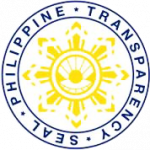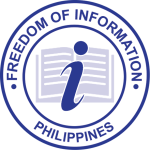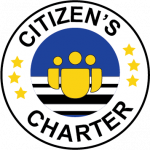- GOVPH
- About BOC
- Issuances
- Aduana Library
- Memoranda
- Memoranda for Reference Values
- Customs Administrative Order (CAO)
- Customs Administrative Order (CAO) 2025
- CUSTOMS ADMINISTRATIVE ORDER (CAO) 2024
- Customs Administrative Order (CAO) 2023
- Customs Administrative Order (CAO) 2022
- Customs Administrative Order (CAO) 2021
- Customs Administrative Order (CAO) 2020
- Customs Administrative Order (CAO) 2019
- Customs Administrative Order (CAO) 2018 and Older
- Customs Memorandum Order (CMO)
- Customs Memorandum Circular (CMC)
- Customs Memorandum Circular (CMC) 2025
- Customs Memorandum Circular (CMC) 2024
- Customs Memorandum Circular (CMC) 2023
- Customs Memorandum Circular (CMC) 2022
- Customs Memorandum Circular (CMC) 2021
- Customs Memorandum Circular (CMC) 2020
- Customs Memorandum Circular (CMC) 2019
- Customs Memorandum Circular (CMC) 2018 and Older
- Custom Special Order (CSO)
- Custom Training Circular (CTC)
- Joint Memorandum Orders (JMO)
- Trade
- News Room
- Port Updates
- HR Corner
- Quicklinks
- Infographics
- Bureau of Customs Webinar
- Auction and Sales
- Bid Opportunities
- Invitation to Bid / Request for Quotation / Invitation for Negotiated Procurement / Notice to Conduct Direct Contracting – 2023
- Invitation to Bid / Request for Quotation / Invitation for Negotiated Procurement / Notice to Conduct Direct Contracting – 2022
- Invitation to Bid / Request for Quotation / Invitation for Negotiated Procurement / Notice to Conduct Direct Contracting – 2021
- Invitation to Bid / Request for Quotation / Invitation for Negotiated Procurement / Notice to Conduct Direct Contracting – 2020
- Invitation to Bid / Request for Quotation / Invitation for Negotiated Procurement / Notice to Conduct Direct Contracting – 2019
- Invitation to Bid / Request for Quotation / Invitation for Negotiated Procurement / Notice to Conduct Direct Contracting
- Bid Documents
- Bid Supplement
- Summary of Awarded Contracts
- Summary of Contracts Awarded 2023
- Summary of Contracts Awarded 2022
- Summary of Contracts Awarded 2021
- Summary of Contracts Awarded 2020
- Summary of Contracts Awarded 2019
- Summary of Contracts Awarded 2018
- Summary of Contracts Awarded 2017
- Summary of Contracts Awarded 2016
- Summary of Contracts Awarded 2015
- Summary of Contracts Awarded 2014
- Summary of Contracts Awarded 2013
- Annual Procurement Plan
- Customs Knowledge Resources
- References
- Gender Equality and Diversity
- Philippine National Trade Repository
- Philippine Tariff Finder
- Authorized Economic Operator
BOC and DICT to implement one QR Code in the e-Travel System for all airports by 10 May 2024, reiterates strict implementation of BSP rules in bringing-in or taking-out of currencies
The Bureau of Customs (BOC) and Department of Information and Communications Technology (DICT) completed the roll-out of the e-Travel Customs System in all international airports. With this, all arriving and departing passengers can now fill-out the electronic Customs Baggage Declaration Form (e-CBDF) and electronic Currencies Declaration Form (e-CDF), as applicable, using the e-Travel website at https://etravel.gov.ph/ or by downloading the eGovPH application within 72 hours [three (3) days] prior to arrival into or departure from the Philippines.
For a seamless travel clearance, one QR code per passenger shall be used in the e-Travel System starting May 10, 2024.
Upon arrival or before departure, passengers shall present their passports to the Immigration Officer for e-Travel registration confirmation and the QR Code to the Customs Officer for clearance.
The e-CBDF must be filled-out by all arriving passengers, while the e-CDF is filled-out by arriving and departing passengers when they are bringing-in into or taking out local and/or foreign currencies beyond the allowed threshold.
The BOC also reiterates its strict implementation of the rules on cross-border transfer of currencies, particularly the following:
a. Any person, who brings into or takes out of the Philippines foreign currency, in excess of USD10,000 or its equivalent is required to declare the whole amount brought into or taken out of the Philippines in the e-CDF.
b. For Philippine currency, a person may bring into or take out of the Philippines an amount not exceeding PHP50,000. Amounts in excess of the limit shall require:
(a) prior written authorization from the Bangko Sentral ng Pilipinas (BSP); and
(b) declaration of the whole amount brought into or taken out of the Philippines in the e-CDF.
The BSP, however, allows cross-border transfer of local currency in excess of the limit only for the following purposes: (a) Testing/calibration/configuration of money counting/sorting machines; (b) Numismatics (collection of currency); and (c) Currency awareness.
VIOLATION OF THE RULES ON CROSS-BORDER TRANSFER OF CURRENCIES OR FALSE DECLARATION OR NON-DECLARATION OF PHILIPPINE OR FOREIGN CURRENCIES SHALL RESULT TO CONFISCATION BY CUSTOMS AUTHORITIES.
Moreover, passengers are reminded that the BSP does not issue a written authorization upon arrival or after confiscation of the excess peso. ##
ABOUT GOVPH
All content is in the public domain unless otherwise stated.







